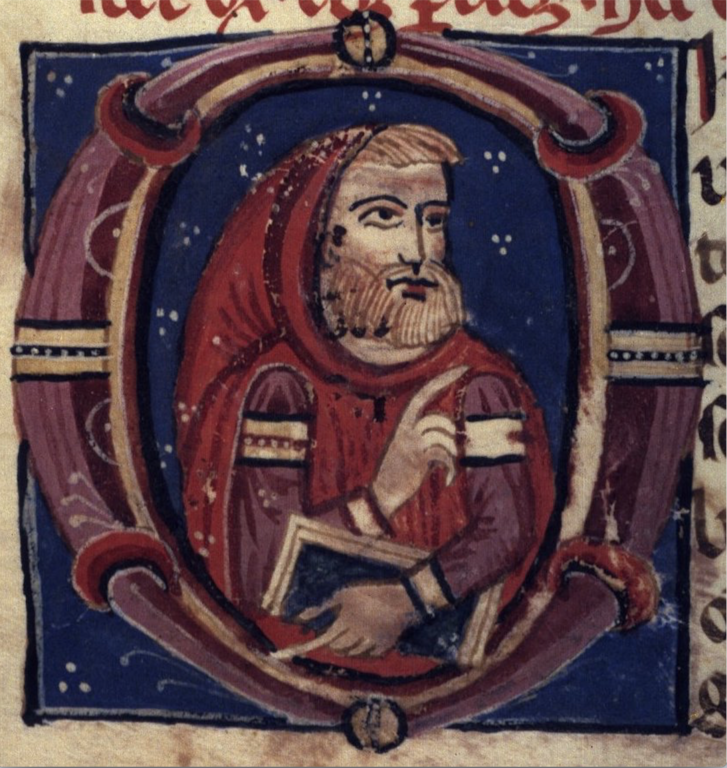Michael Scot
Michael Scot (1175 – c. 1232) was a mathematician and scholar in the Middle Ages. He translated Averroes and was the greatest public intellectual of his day. He served as science adviser and court astrologer to the Emperor Frederick II.
Scot wrote that "Every astrologer is worthy of praise and honour, since by such a doctrine as astrology he probably knows many secrets of God, and things which few know."
Early life
Scot was born somewhere in the border regions of Scotland or northern England. It has been claimed that he studied first at the cathedral school of Durham and then at Oxford and Paris, devoting himself to philosophy, mathematics, and astrology. It appears that he had also studied theology and become an ordained priest.
Travels through Europe
Scot was a typical example of the polyglot wandering scholar of the Middle Ages—a churchman who knew Latin, Greek, Arabic and Hebrew. When he was about 50, Frederick II attracted him to his court in the Kingdom of Sicily, and at the instigation of the emperor he superintended (along with Hermannus Alemannus) a fresh translation of Aristotle and the Arabian commentaries from Arabic into Latin. There exist translations by Scot himself of the Historia animalium, of De anima and of De caelo, along with the commentaries of Averroes upon them.
In a letter of 1227, recorded by Scot in his Liber particularis, Frederick put questions to him concerning the foundations of the earth, the geography and rulership of the heavens, what is beyond the last heaven, in which heaven God sits, and the precise locations of Hell, purgatory and heavenly paradise. He also asks about the soul; and about volcanoes, rivers, and seas. According to the chronicler Fra Salimbene, he attempted to catch Scot out in his calculations of the distance to heaven by scaling from the height of a church tower (by having it secretly lowered). Scot replied by saying that either the moon had gotten further away or the tower had gotten shorter.
He was offered in 1223 the role of being the Archbishop of Cashel in Ireland by Pope Honorius III; then that of Canterbury in 1227 by Pope Gregory IX.
As a magician
Scot's reputation as a magician had already become fixed in the age immediately following his own. The legendary Michael Scot was said to feast his friends with dishes brought by spirits from the royal kitchens of France and Spain and other lands. He is said to have turned to stone a coven of witches, which have become the stone circle of Long Meg and Her Daughters.
He appears in Dante's Divine Comedy, the only Scot to do so, in the fourth bolgia located in the Eighth Circle of Hell, reserved for sorcerers, astrologers, and false prophets who claimed they could see the future when they, in fact, could not.
In John Leyden's ballad Lord Soulis, Michael Scot is credited with teaching magic to the protagonist, the evil sorcerer William II de Soules, who ends up being boiled alive.
